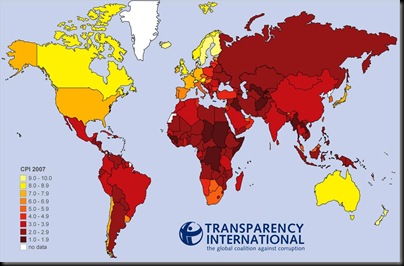Newcastle Uni Wireless iPhone PDA Internet Hot Of The Press
From Thursday 30th April 8am, Cisco Clean Access Agent no longer is used for wireless connections, and is only used for wired. wOOOOOOOOOO
Direct from the IT support crew:
Hi All,
the cut over should occur Thursday 30th April from 8am.
We are using a soft launch for these changes as users should fall into 2 categories
a) new users – so won’t know the difference and will use new documentation ( or omit the last steps on the existing documention
b) existing users – who hopefully won’t be affected by the changes.
Comms has taken on board feedback from across the University about simplifying the wireless network for users and students in particular. The changes mean that the Cisco Clean Access login will be bypassed for all wireless users.
This means:
* Users will still need to associate to the wireless network
* Users will still need to login to the proxy server, as normal
* This change wont impact wired connections
* The wireless network is essentially back to where it was two years ago
We have completed some successful testing with the change active in a test wireless network. Any student or staff member already configured will not have to do anything, they just wont see the web login. New laptops are now an easier task to connect after the change.
We have also tested the scenario where the student has installed the Cisco Clean Access Agent – the agent will no longer prompt for a login and lies dormant. This can be removed/uninstalled after the change has been made.
This also means that iPhones and iPod Touches will also work. (along with other smartphones/PDA’s etc. that don’t support Java or ActiveX).
We are working on revising the documents on the web in time for after the change. The current documentation is still useful except for the clean access bit. In the current documentation (http://www.newcastle.edu.au/unit/it/wireless/index.html), the bit removed from each is:
Windows XP – Web Authentication – Steps 1 to 4
Windows Vista – Web Authentication – Steps 1 to 4
Mac OS X 10.4 (Tiger) – Web Authentication – Steps 1 to 3
Mac OS X 10.5 (Leopard) – Web Authentication – Steps 1 to 3
iPhone/iPod Touch – Connection – Steps 8 onwards
This is great news for iphone and pda users, no more cisco login which means internet on nearly any wireless device now :D
Transparency International’s Annual Corruption Perceptions Index
Transparency International’s Annual Corruption Perceptions Index measures perceptions of corruption by business-people, risk analysts and the general public, and ranges between 10 (highly clean) and 0 (highly corrupt). Yuo can read more about this on their website here.
Interesting to see we live in one of the cleanest countries in the world, what a wonderful country. Click for full size.
Is management considered a science or art?
As organisations are becoming more complex in modern organisations, it can be argued to be both, either a science or an art, depending upon how it is approached. Lets have a look below:
ART – All managers at some point deal with people and problems in the real world. They are required to quickly make decisions, thus relying on intuition, experience, instinct and personal insights.
SCIENCE – Many management problems can be approached in a rational, logical, objective, systematic way. Quantitative models can be employed to arrive at ‘correct’ decisions.
Have a look below at Management in Antiquity and how different countries used management:
- Sumerians – written rules of governance.
- Egyptians – management principles to organise large scale construction projects. EG, the pyramids.
- Babylonians – laws and policies of governance.
- Chinese – extensive organisational structure for government agencies and the arts.
- Greeks – different governing systems for city and state.
- Romans – organisational structure and hierarchical management for communication and control.
- Venetians – assembly line operation to build sailing vessels.
Do you think managers today use a blend of art and science in their role? What determines this blend?
The Hawthorne Western Electric Plant Study
From 1925 to 1932 a series of psychology experiments were conducted at the Hawthorne Western Electric Plant. Australian psychologist, Elton Mayo (1880-1949), who some refer to as the founder of the human relations movement, was the Harvard professor and research team leader behind the project. His aim was to see if human’s productivity increased depending on how bright the lights were in the plant.
Illumination Experiments led Mayo and his team to conclude that human beings respond to the social, psychological experience of participation. The Illumination experiments saw changes in lighting intensity provoke increases in productivity rates among shop-floor factory workers (irrespective of whether the lights were turned up or down).
This means that when someone dimmed or increased the lights the workers noticed and thought, “wow, there watching us at the moment.” This made them increase productivity. Maybe they would of formed better results if the employees didn’t know they were testing and the light changes were very small.
So what is the Human relations movement?
- Employees are essentially social beings, not merely rational economic ones.
- As social beings, employees are members of groups and are NOT motivated strictly by monetary gain.
- Managers should always relate to individuals with full awareness of the nature of groups and their influence on individual behaviour.
- The manager is responsible for turning these informal groups into positive forces in the workplace.
- Managerial effectiveness often depends upon a relationship of mutual trust between employees and their superiors.
- Aside from the ground-breaking work by Elton Mayo at the Hawthorne plant, several other names are also closely associated with the Human Relations Movement such as Abraham Maslow and Douglas McGregor.
What do you think of Mayo’s experiment? Good? Bad? Or maybe interesting?
Friedman & Business ethics
1 hour away till my last uni exam for the semester, I leave you with this wonderful quote. Wish me luck :)
“There is one and only one responsibility of business: to use its resources and energy in activities designed to increase its profits so long as it stays within the rules of the game … engages in open and free competition, without deception and fraud … few trends could so thoroughly undermine the very foundations of our society as the acceptance by corporate officials of a social responsibility other than to make as much money for their stockholders as possible.”
Friedman (1968)
 Follow
Follow
